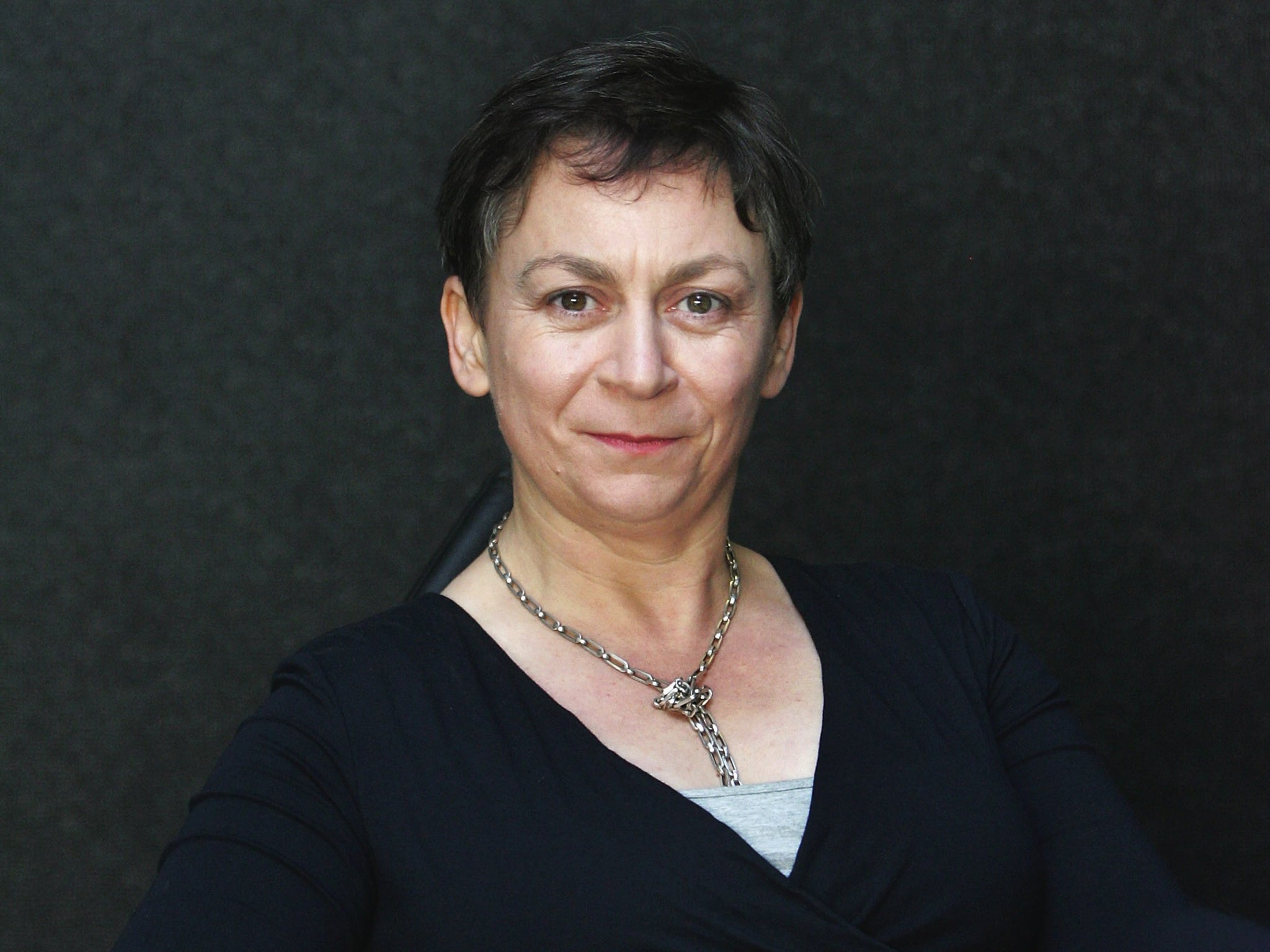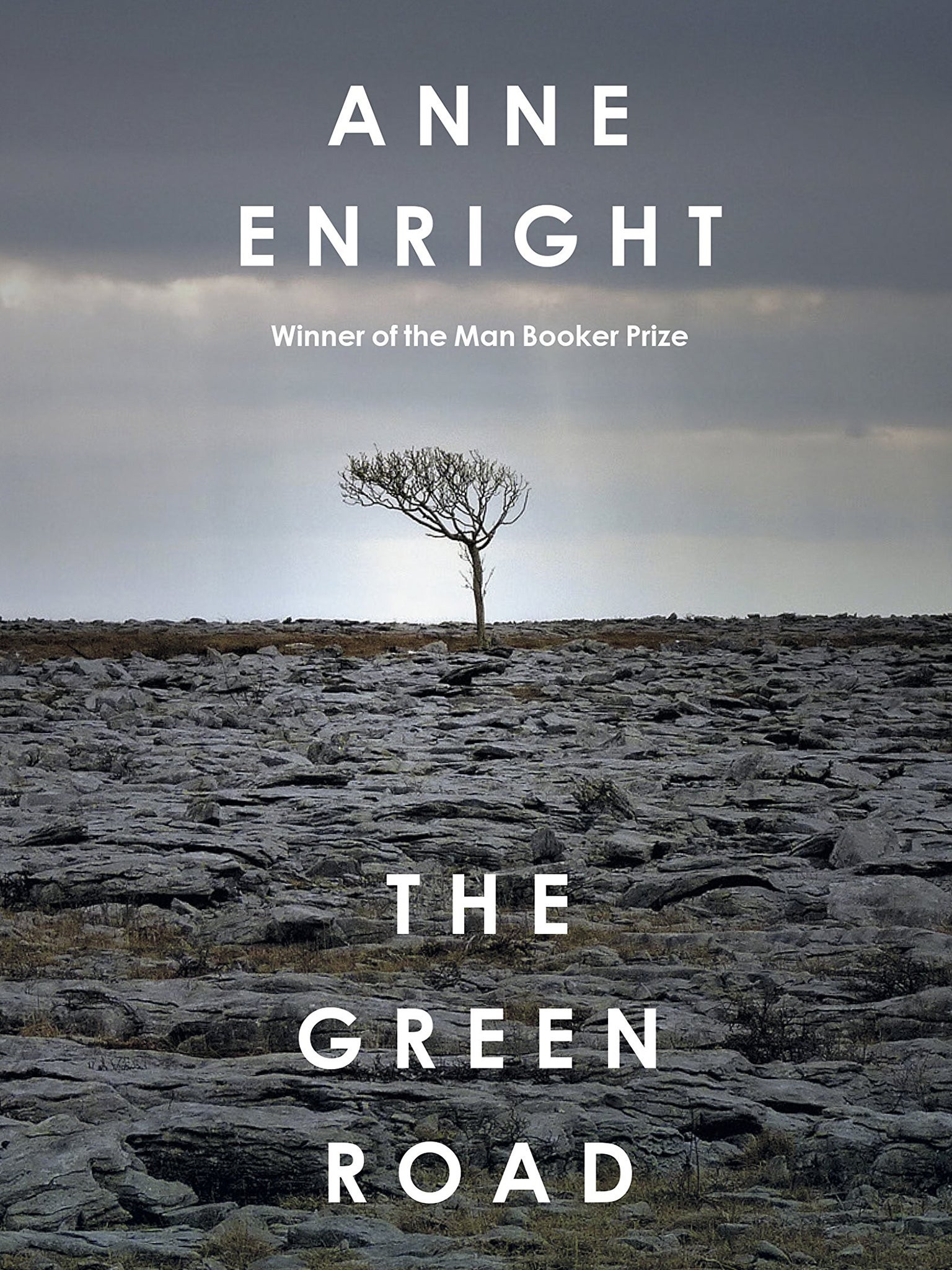The Green Road by Anne Enright book review: You can't escape family, however far you try to go
A world that completely sucks in the willing reader

Anne Enright does families, that’s for sure. Large families, too (2007’s Booker Prize winning The Gathering had eight Hegarty children reuniting for the funeral of the ninth).
And frighteningly convincing families, flaring up from the page right in front of you, as if they were all sitting and sulking and getting huffy and drunk and argumentative right there at your own kitchen table.
The (typical?) Enright family spans several generations: here are its teenagers, leaving a faint stain from their damp fake tan on the pale leather interior of the parental Lexus; its drunk mums, setting off for a day out with the baby, tucking into the buggy an Innocent Smoothie bottle containing a nicely camouflaged mixture of fruit juice and vodka; and its old folks, still cycling “in all weathers five miles to the nearest shop” and thinking nostalgically, “Days they spent”, about all the sex they used to have.
This is Enright’s first novel since her tale of adultery, affairs and more large families The Forgotten Waltz (2011). The Green Road starts in 1980, with Hanna: who has just made some cheese on toast, but whose mother Rosaleen needs her to run to her uncle’s pharmacy for some Solpadine.
From this simple beginning, and these careful details, Enright constructs a world that completely sucks in the willing reader. A pound note tucked into a sock, geraniums in a porch: somehow, using neither unique narrative techniques nor actual shamanic ritual, Enright makes the Madigans come alive with a fierce clarity. She is that rare thing: a very, very good writer.

The first chapters introduce the four Madigan siblings in turn, moving the family through the years at the same time. Shown right into their heads, we understand the tight familial lines of devotion, duty and disgust that both draw them together and keep them apart (in two cases, geographically, reflecting keenly the Irish diaspora of the late 20th century).
Hanna’s Eighties childhood in Ireland; Dan’s early Nineties in New York, running away from his own gayness; Constance, who is married with kids and must go nervously into Limerick for a mammogram; and Emmet, an aid worker in Mali, whose girlfriend adopts a dog that none of the locals likes. On the way a lot of ground is covered, from Fire Island sex to the pleasures of road-widening: “Constance still could not believe the new section of road, after years of bad corners and blind spots, you just pointed the car and went – it was as though the fields unzipped, to let you straight through.”
The second half of the book is its core: the Madigans all come home together for one final Christmas, as Rosaleen announces she’s tired of her empty old house and that she’s planning to sell. Enright exactly captures the potential tortures of a big noxious family Yuletide with all the tight skill of someone who’s sat watching several. It’s observed, not surgically, but with a kind of sick warmth, as Hanna buys wine to numb herself, Constance fumes over the lack of a dishwasher, and Dan butters up his mother with all the enthusiasm of a prodigal son on a very short visit.
Now, Rosaleen finally comes into focus, having been the awkward, absent maternal linchpin for much of the book. (Her agony over forms of address in her children’s Christmas cards is painful and recognisably true.) Enright gets her beautifully: Rosaleen is old, and she thinks her children are ungrateful, but doesn’t know quite how to love them; her offspring sit in that blue, uncertain interval of deciding whether a forgetful old person is just being stubborn and awkward, or can’t remember anything at all.
Yet despite the book’s occasional moments of drama (there’s a wonderful set piece where the only people free to be mobilised for an emergency that aren’t drunk turn out to be the local AA membership) it is the details that linger. Emmet, the aid worker, at Geneva airport, “after a tough 18 months in the Sudan”, sickened “by the beautiful obscenity of stuff”, but also feeling “an overwhelming urge to lie down on the clean, perfumed floor”; or more suburban but just as memorable, Constance, “comforted, lying on the trampoline under the stars, with her daughter in her arms.”
The Green Road changes its focus frequently, and this is the rare multi-voiced book that really works, plotwise; but Enright’s characters are linked by a family that has bound them tightly, no matter how far across the world they’ve tried to scatter themselves.
I settled into the book in a way I hadn’t done for weeks; the world of it seemed to me more transfixingly real than anything else, for the time I was reading it. Twitter, Facebook, Instagram, Tumblr faded to shadow; I was not distracted from reading a single word. When a writer of Enright’s quality pays such attention to the way that things really are, all we can do as is pay rapt attention back.
Jonathan Cape £16.99
Join our commenting forum
Join thought-provoking conversations, follow other Independent readers and see their replies
Comments